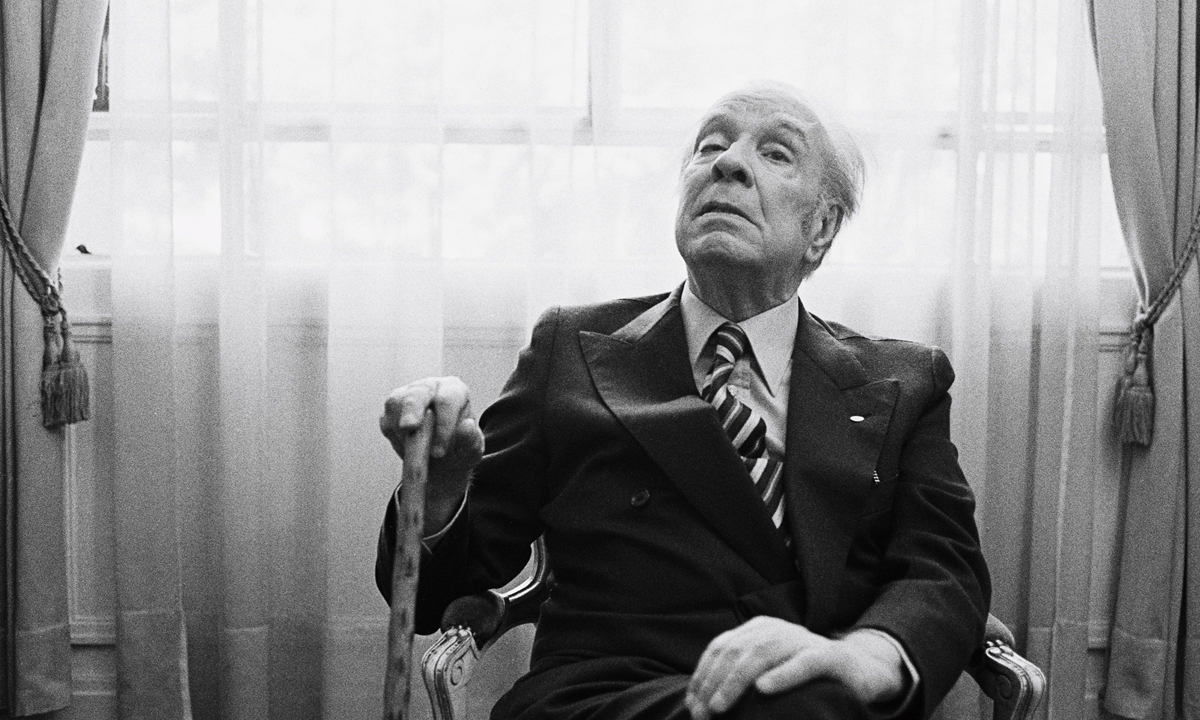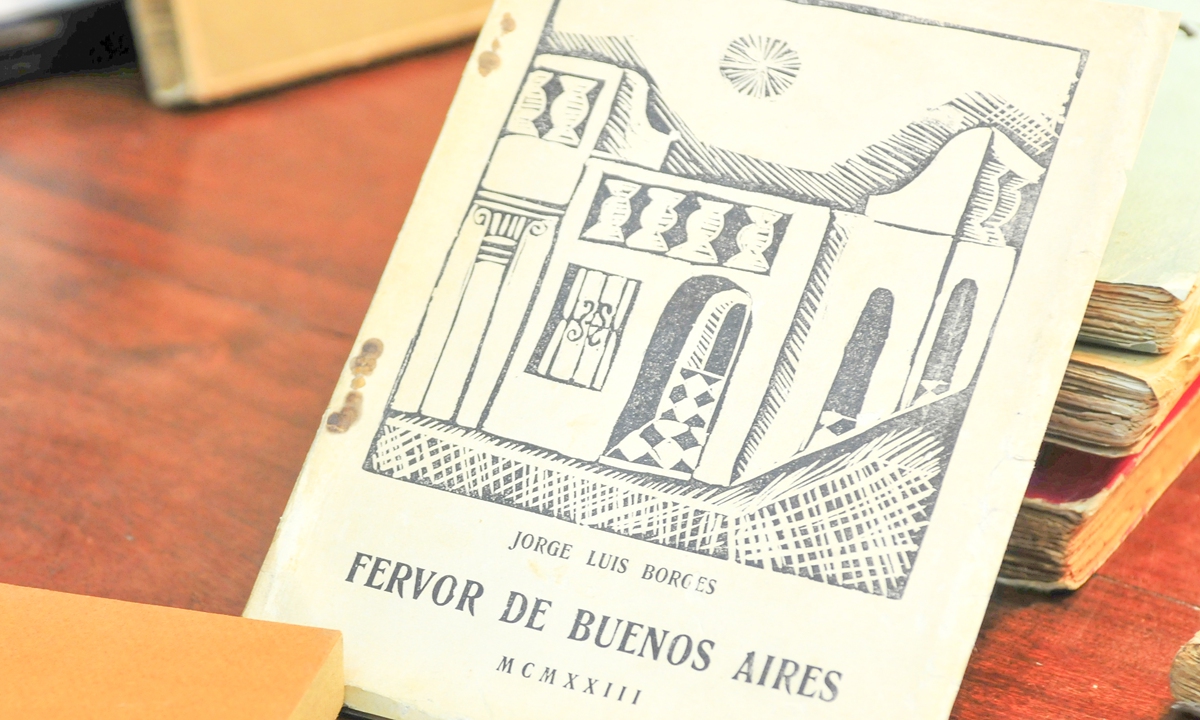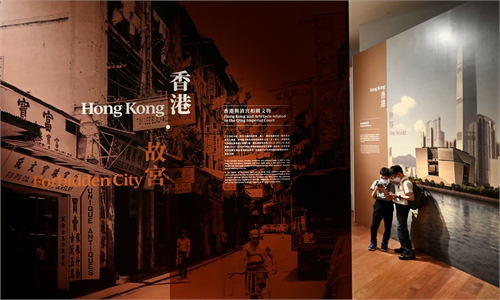ARTS / BOOKS
Argentine author Borges invaluable to West’s understanding of China, says academic
Bridge between cultures

Jorge Luis Borges Photo: VCG

A copy of Fervor de Buenos Aires written by Argentine writer Jorge Luis Borges Photo: IC
Distinguished Argentine writer Jorge Luis Borges (1899-1986) made an invaluable contribution to the West's understanding and appreciation of China, Argentine literature professor Ruben Pose has said.Borges, a key figure in Spanish language and international literature, was also an admirer of traditional Chinese culture. Chinese philosophy greatly influenced his works, such as Kafka and His Precursors and The Garden of Forking Paths.
In a recent interview with the Xinhua News Agency, Pose, an expert in Hispanic Philology, said Borges' admiration for Chinese philosophy and literature came through in his short stories, poems and essays, contributing "to the Western understanding of Chinese culture."
For example, Pose said, Borges highlighted the I Ching [Book of Changes] as a classic text that could take its place alongside other classics of world literature.
"That allows us to read Chinese literature as literature, not as something strange, different or exotic," the expert said.
"Borges breaks with that, and it is a very important step because in his time very few people would agree to open the doors to Chinese literature, but Borges did."
Thanks to the author, "readers who came later considered it more natural to include Chinese literature among our reading," Pose added.
Borges' writing, he said, reflects his extensive knowledge of Chinese culture. In 1937, he published a review of the novel Dream of the Red Chamber by Cao Xueqin, one of the four classics of Chinese literature. Three years later, he published The Book of Fantasy, featuring two translated episodes from Red Chamber.
In his essay Kafka and His Precursors, he mentioned Tang Dynasty (618-907) poet Han Yu, and in the story The Garden of Forking Paths, he again alluded to the Red Chamber.
He was also an avid student of Chinese philosophy, reading key works translated into English, French and German. "Borges searched, quoted and transformed Chinese philosophical postulates into a literary technique," Pose said, noting the presence of "complementary opposites, yin and yang, in many of Borges' texts."
"One observes this in Borges, there is synthesis and condensed thought, but it is also an aesthetic postulate of classical Chinese poetry," he said, showing the impact of Chinese philosophy on Borges' works.
While Borges never visited China, he is the Latin American writer most translated into Chinese, and his work has significantly influenced Chinese authors. The Garden of Forking Paths was one of the first Borges works to be translated into Chinese, and "it had a very strong impact from the point of view of the Chinese avant-garde," said Pose, who has studied the Chinese language since 2004.
"Borges helped to understand some tenets of Chinese thought without having stated them directly, in many cases," and that fostered "recognition between China and Argentina, and between China and Latin America," he said.
By bringing Chinese and Latin American readers closer together, Borges "produced an interaction between one culture and another that helps mutual understanding."



